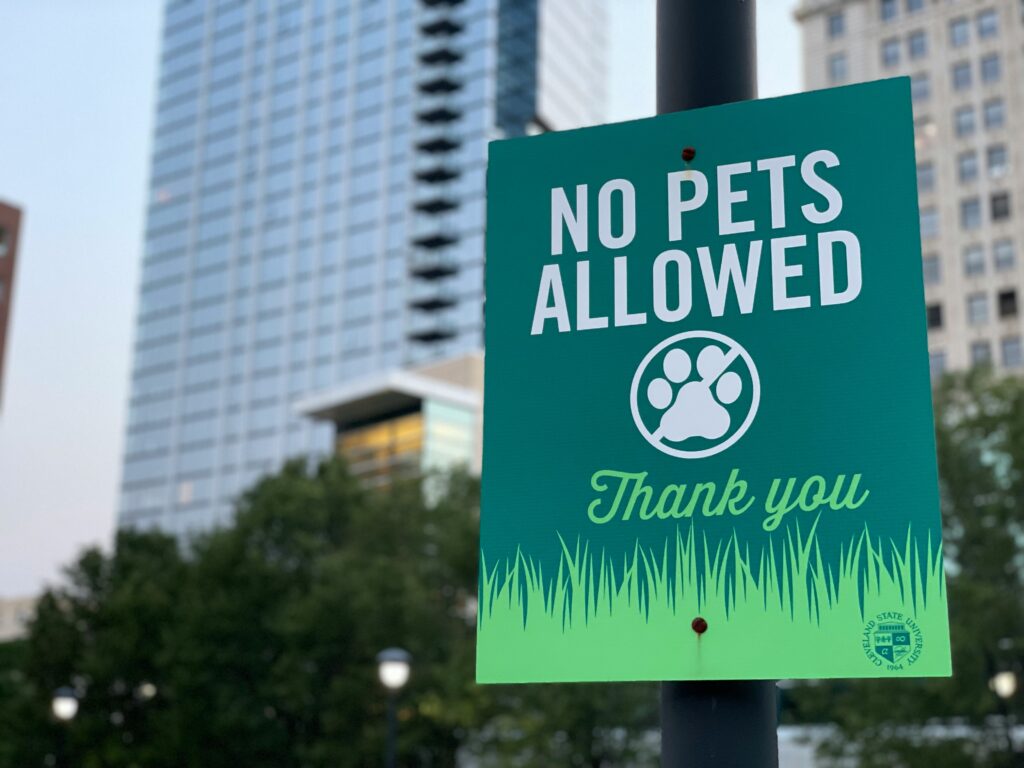Introduction: Why Laws Around Pets Are Changing
In the last few years, pet ownership has surged—fueled by lockdowns, loneliness, and a nationwide shift toward seeing animals as companions rather than property. This isn’t just a trend; it’s a cultural reset. More people now refer to themselves as pet parents than owners, and pets are increasingly seen as part of the family.
Governments have taken notice. With more furry lives in human hands, regulators are stepping in. From breeding and sales to housing and health, legislative bodies are tightening the rules to ensure pets are treated with care and dignity. The focus isn’t just on the animals—it’s also about the systems around them: safe adoption pathways, fair housing access, reliable travel protocols, and tech that doesn’t breach privacy.
For anyone who has a pet—or plans to get one—this matters. Legal changes are reshaping everything from where you can live with your dog to how you adopt a parrot. Navigating the new landscape means paying attention, staying prepared, and adjusting how we think about responsibility. These laws aren’t just hoops to jump through. They’re a signal that society’s expectations around pet ownership are evolving fast—and it’s on us to keep up.
New Rules Around Breeding and Sales
The breeding business is under the microscope. Governments are tightening oversight on commercial breeders, demanding clearer records, better housing conditions, and increased veterinary involvement. Many jurisdictions now require frequent inspections to catch bad actors before things spiral—think mass breeding facilities with little regard for animal welfare.
Illegal imports and unregulated puppy mills are also facing a crackdown. Law enforcement is coordinating with customs and animal welfare groups to stop the flood of poorly treated, sick animals entering the market. Online sales are a key battleground—expect more ID checks, registration requirements, and penalties for sketchy sellers.
But it’s not just large-scale operations feeling the pressure. Small-scale and hobby breeders—those who do this part-time or casually—are now being pulled into licensing regimes. Some are struggling to keep up with new zoning and paperwork rules, even if their care standards are high. If you’re breeding for the love of a breed, you’ll need to learn the legal ropes fast.
Buyers and adopters have a role too. Scrutinize where your future pet is coming from. Ask about licenses, visit in person if you can, and avoid anyone who’s evasive about documentation. A legit breeder will be transparent. So will a responsible rescue. The red flags? Vague answers, pushy sales tactics, and a refusal to let you see the animal’s environment.
Updated Guidelines for Exotic and Restricted Pets
As laws around animal ownership evolve, exotic pet regulations have come under new scrutiny. Governments are tightening restrictions to address health, safety, and environmental concerns associated with non-traditional animals.
Species Under Scrutiny
Many jurisdictions have begun to restrict or ban ownership of certain exotic animals. These include, but are not limited to:
- Large reptiles (e.g., pythons, monitor lizards)
- Primates
- Big cats and certain wild canines
- Venomous or endangered species
These bans often cite the risk of injury, disease transmission, and ecological disruption if such animals are released or escape.
Permit Requirements and Habitat Standards
If ownership is allowed at all, pet owners now face more rigorous requirements:
- Permits: In many regions, keeping restricted species legally requires a state or municipal permit that must be renewed regularly.
- Reporting: Owners may be obligated to report detailed information about their pet’s health, housing, and even feeding practices.
- Enclosures: Housing must meet high safety standards designed to prevent escape and protect both the pet and the community.
Failing to comply can lead to serious legal repercussions, including fines or seizure of the animals.
Why These Laws Are Appearing Now
There are three key reasons driving the legislative push:
- Public Health Risks: Exotic pets can carry zoonotic diseases that pose significant health threats to humans and other animals.
- Environmental Concerns: Released or escaped exotic pets can cause damage to local ecosystems and native species.
- Ethical Responsibility: Lawmakers are responding to growing awareness of animal welfare standards and humane treatment.
Understanding these new rules is essential for anyone considering an exotic pet. Legal ownership is increasingly a matter of careful compliance and continued oversight.
Housing and Pet Rent Laws
Renters with pets have long had to navigate extra fees, limited options, and a general sense of compromise. That’s starting to shift. As more cities acknowledge the positive impact of pet ownership on mental health and community, policies are leaning toward what’s being called “pet-inclusive housing.” This means landlords in cities like Seattle, Austin, and parts of New York are facing new guidelines—or outright mandates—to accommodate responsible pet owners rather than penalize them.
Part of the confusion lies in what landlords can legally charge. Pet deposits (refundable) and pet rent (monthly fees) often get lumped together, but states are beginning to set clearer standards. For instance, California limits how much can be required upfront, while other states are banning double-dipping—charging both a hefty pet deposit and monthly pet rent. Know your local rules, because these laws are patchworked and changing fast.
If you’re a renter with a pet, start by carefully reviewing lease language. Look for vague clauses like “pets at management discretion.” Push for specifics. Don’t be afraid to negotiate terms—especially in pet-friendly regions where you’re likely not the only one asking. Also, Fair Housing protections may apply if your animal qualifies as an emotional support or service animal. Landlords can’t charge fees in that case—even if the policies say otherwise.
The bottom line: Whether it’s a goldendoodle or a gecko, knowing your rights makes for fewer surprises. And better moves.
Travel, Vaccinations, and Identification Requirements
Crossing borders with pets used to be straightforward—pack some kibble, update a rabies shot, and hit the road. Not anymore. As of 2024, both states and countries are stepping up requirements for animal movement. The aim is clear: prevent disease spread, streamline identification, and enforce responsible pet ownership across jurisdictions.
For starters, rabies vaccinations are no longer optional—they’re mandatory almost everywhere. But it doesn’t stop there. Many regions now demand proof of additional vaccinations, such as for distemper or leptospirosis, before entry. These aren’t just recommended—they’re legally enforced. Without them, you risk denial at borders or mandatory quarantine.
Microchipping is quickly becoming a non-negotiable. Not only must your pet have one, but the chip needs to be registered and up to date, often linked to your identity and current location. On top of this, digital pet health passports are spreading fast. Think government-approved apps or databases where your vet logs health records for authorities to verify in real-time. Paper records are no longer enough.
So what does this mean for the modern, mobile pet owner? Whether you’re moving cross-country or planning that dream sabbatical to Europe, you’ll need to plan ahead. Schedule vet visits well in advance, keep digital documents organized, and double-check destination regulations—every place is different, and rules evolve fast.
For frequent movers and travel-focused vloggers with pets in tow, this is a reality check. The days of spontaneous pet travel are fading. Compliance now requires discipline, planning, and tech-savviness. The upside? Once you’re squared away, you can cross borders without nasty surprises.
Animal Welfare: Enforcement is Getting Serious
The days of light slaps on the wrist for animal neglect are over. Across the U.S. and in many parts of Europe and Australia, lawmakers are passing tougher legislation that increases fines and introduces mandatory jail time for serious cases of abuse or abandonment. Some regions now categorize extreme neglect under felony charges, not just misdemeanors.
For pet owners, the message is clear: ignorance won’t cut it anymore. Leaving your dog in a hot car, failing to provide proper shelter, or skipping out on vet care isn’t just morally questionable—it could get you fined or worse. Cities and counties are pushing education campaigns, but enforcement is no longer soft. Animal control and police departments are collaborating more closely. If an investigation starts, it doesn’t stop at a warning.
Rescue groups and shelters are also feeling the ripple effect. Stricter laws mean they’re dealing with more intake from law enforcement seizures, which strains already limited resources. Some governments are offering grants or subsidies to help licensed rescues handle the increased workload, but many are still overwhelmed. At the same time, these legal shifts may create better outcomes long term: fewer backyard breeders, faster intervention in hoarding cases, and clearer standards for adoption screening.
Bottom line: if you’re a pet owner, know local rules—and actually stick to them. Respecting the law isn’t just for the system. It’s for the animals who rely on you.
The Legal Side of Pet Tech
As pet technology becomes more advanced, it’s also becoming more entangled with legal questions around privacy, ownership, and even data rights.
Smart Devices, Real Legal Risks
Smart pet products like GPS collars, automatic feeders, and health monitors collect valuable data about pets and sometimes, indirectly, their owners. This raises questions about data storage, access, and consent.
- GPS collars and location tracking: Who owns that location data? Can it be used in legal disputes?
- Smart feeders and activity monitors: These can reveal your routines and potentially even personal habits
- Data-sharing policies: Many pet tech companies collect and share usage data—check the fine print
When Tech Meets Custody Battles
In separation or divorce cases, pet ownership disputes increasingly involve tech. Real-time tracking data or app usage logs are increasingly cited in mediation or court to argue who is the pet’s “primary caregiver.”
- Ownership claims: Apps linked to microchips or GPS collars may be used to argue legal responsibility
- Tracking history: Location data may be considered in disputes over pet custody or visitation rights
- Multiple user profiles: Devices with shared access can complicate legal claims
Stay Informed
As pet tech continues to evolve, understanding the legal implications of the technology you use is key. For a deeper dive into emerging tools and how to use them legally and ethically, check out our latest insights:
See more in our Monthly Recap covering advances in pet tech
Bottom Line: What Pet Owners Should Do Now
Staying informed isn’t optional anymore—it’s part of responsible pet ownership in 2024. Start local. City and county ordinances are often where changes hit first. Check your local government websites or sign up for neighborhood alerts. A growing number of veterinary clinics now post legal updates alongside health notices, especially for things like required vaccines or banned breeds. And don’t underestimate pet community forums. As informal as they seem, they often catch shifts in housing rules or permit enforcement ahead of the curve.
If something feels big—like a housing dispute, a confiscation threat, or an issue with animal control—it’s time to call in a professional. Pet law is evolving quickly, and a seasoned attorney or pet advocate can help you stay protected. Their advice can also be crucial if you run a rescue, foster pets, or operate a breeding program.
Small legal adjustments can radically alter the day-to-day life you live with your pet. Whether it’s a new local leash law, rental restrictions, or state-level bans, staying ahead means fewer surprises—and more peace of mind.


 Alina Mackchesty brought creativity and insight to Pet Hub Loop, supporting the project with her contributions to design and user experience. Her work helped make the platform both welcoming and practical, enhancing the way pet owners connect with the resources they need.
Alina Mackchesty brought creativity and insight to Pet Hub Loop, supporting the project with her contributions to design and user experience. Her work helped make the platform both welcoming and practical, enhancing the way pet owners connect with the resources they need.